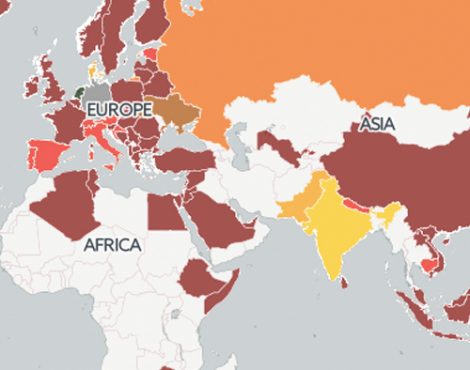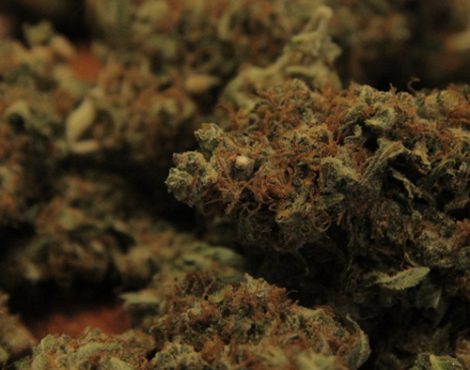Possession, cultivation, sale and distribution of cannabis is illegal in the UK and it applies to every citizen, even those who are dependent on the illegal plant for medical reasons. Medical patients have to fight this reality everyday and for many of them, cannabis is a life-saving drug that they admit, they cannot do without. But why is decriminalisation a big deal? What are the concerns and what is the attitude of those working to protect society? (Also Listen: The Decriminalisation Debate and Sativex)
The Arguments
Experts argue that while decriminalisation will not be such a bad thing after all, the concerns associated with accessing the drug will need to be dealt with more strictly. How this will be achieved is still not very clear. Such views are not just held by experts alone. Young students like Tom Harwood have seen the effects the drug can have on a person’s mental health and their behaviour in general.
While many are clear on legalisation for medicinal use, scepticism still prevails over recreational use and there are mixed attitudes in this regard (Also Listen: Recreational Users Vs. Medicinal Users). Patients and experts alike are aware of the fact that cannabis may not be the best form of treatment, especially for those with mental health problems. They argue that cannabis, just like any other substance with a high potential for abuse, such as alcohol or tobacco, may act as a stimulant to provoke psychotic behaviour or schizophrenia.
What does the cop say? – The Police Perspective
The Durham Constabulary in North-East of England has become the first police force in the country to state publicly that small scale cannabis growers will not be targeted by officers. A report in The Guardian quoted Durham Police and Crime Commissioner (PCC) Ron Hogg as saying,
“The focus of what we are trying to do is target those who produce drugs on a larger scale. Our communities want us to focus on drug dealers in the streets. They don’t want dealers in the streets at the same time as their children are playing.
It’s illegal to grow and use cannabis and we will still enforce the law. However, what we will try and do is engage with users and help them if that’s what they want.”
The current attitude among the police force seems to be a bit more lenient in the case of cannabis users. They would rather use the necessary resources to focus on more serious crimes than tackle the weed problem, as is highlighted in this Telegraph report. The report cites drugs policy expert Harry Shapiro who says,
“It varies hugely and really depends on where you live in the country. It is probably less of a priority for police in inner city areas than in rural communities. But I would be surprised if any Chief Constable would be placing cannabis possession high up on their list of priorities.”
PCC Ron Hogg isn’t the only one to favour decriminalisation. PCC Alan Charles of Derbyshire and Martyn Underhill of Dorset also support Hogg’s stance. They admitted to The Guardian that budget cuts to the police forces in the light of austerity measures have made them reconsider their priorities of targeting more serious crimes related to “abuse and violence”.
A more recent report in The Guardian highlighted that Tom Lloyd, ex-police chief will now be heading the National Cannabis Coalition, which favours cannabis legalisation. The former chief constable of Cambridgeshire Police will be chairing this group that is formed of pro-legalisation campaigners like Norml UK, the UK Cannabis Social Clubs and the United Patients Alliance. “When you think about arresting somebody who is in possession of drugs, are you really catching a criminal?” he asked. “When it came to law enforcement I think I caused more harm than good”, he was quoted as saying.
Each of these organisations that are a part of the coalition, independently have been campaigning and raising awareness about the medicinal use of cannabis for a while. They will now be making a collective effort as part of the NCC with an aim to bring about a change in cannabis laws by reaching out to policy makers.
The Patients
Patients feel that decriminalising cannabis is the need of the hour. It is also a first step toward legalisation, especially for medicinal use. They feel more strongly about being able to grow their own cannabis freely without the fear of being prosecuted by the law. Sarah Martin argues that it’s a waste of police resources. She grows and uses cannabis for treating her MS symptoms and people in her life are aware of this fact.
Sarah was diagnosed with multiple sclerosis in 2003 and is being prescribed with Sativex. But sometimes, she runs out her medicine earlier than expected, which leaves her no choice but to use raw cannabis. Sarah advocates vapourising as a healthier option in comparison to smoking. (Also See: Sarah On Her Illness and Sativex)
Experts argue that the decriminalisation debate should be considered in view of tagging patients as criminals, while they treat their illnesses with cannabis. Professor John Middleton of Wolverhampton University favours decriminalisation and mentions that the reclassification of cannabis, perhaps needs to be reconsidered.
In 1979, the UK Advisory Council proposed moving cannabis to Class C under the Misuse of Drugs Act. In 1994, over 72,000 people were convicted or cautioned for cannabis offences. Six years later, in 2000, a Police Foundation Report of the Independent Inquiry Into the Misuse of Drugs Act 1971 recommended that cannabis be reclassified from Class A to Class C. It also offered recommendations for reclassification of other drugs like Ecstasy and LSD. The government turned down these recommendations. In 2001, Britain’s home secretary David Blunkett also proposed relaxing the classification of cannabis to a Class C drug. It wasn’t until January 2004, that cannabis was categorised as Class C, only to go back to Class B in 2004. (Also See: Cannabis History – Once Upon A Time)
For patients like David Hibbitt, cannabis is a life-saving medicine. David had a terminal diagnosis of stage 3 bowel cancer and had between 18 months to 5 years. He had several chemotherapy sessions and also changed doctors and hospitals. Though he didn’t want to take cannabis initially, he thoroughly researched cannabis oil, which is used by many cancer patients across the world. He decided to try it and saw gradual improvements. Initially, David was taking cannabis oil along with his chemotherapy sessions but then switched to cannabis as a stand-alone medication. He was also prescribed drugs like Tramadol, but is now completely off of them. David is now cancer-free.



